The Strange Love of Martha Ivers

Brief Synopsis
Cast & Crew
Lewis Milestone
Barbara Stanwyck
Van Heflin
Lizabeth Scott
Kirk Douglas
Judith Anderson
Film Details
Technical Specs

Synopsis
In 1928, young Martha Ivers is returned by the police to Iverstown, Pennsylvania after running away for the fourth time to escape the tyranny of her aunt. When her aunt insults her dead father, then attacks her pet cat with a cane, the child kills her aunt with the cane. Martha's friend, Sam Masterson, with whom she was trying to run away, flees the scene and joins the circus. Mr. O'Neill, Martha's greedy tutor, and his weak-minded son Walter, support Martha's story that the murderer was a strange intruder. In 1946, Sam inadvertently returns to Iverstown when he wrecks his car. He meets Toni Maraceck, who was let out on parole that night on a theft charge of which she is innocent. Walter, now a dipsomaniacal district attorney, is running for political office at the urging of Martha, who is now his wife and runs the family mill, which she has built into a considerable fortune. Although Walter loves Martha, they have a passionless marriage because she has never stopped loving Sam. When Toni is picked up by the police for violating her parole, Sam goes to Walter's office and appeals to him for help, and Walter assumes that Sam is in town to blackmail him and Martha. When Martha enters, Sam realizes she and Walter are married. He later visits Martha at the Ivers home, where she confesses her love for him. Walter forces Toni to make a deal with him or be sent back to prison, and she sets Sam up, unaware that Walter's men are going to beat him. Sam awakens from the assault to find himself in a ditch. He then confronts Walter, who accuses him of blackmail. Sam investigates Martha's aunt's death in archival newspapers and learns that the case had remained unsolved for years until a man who used to work for the Ivers family was picked up on a small holdup charge and accused of the murder. Walter, who was engaged to Martha at the time, handled the prosecution of the man. Armed with new information, Sam demands half-ownership in Martha's factory. She later takes him for a drive, and at a hillside campfire, inadvertently confesses to the murder, unaware that Sam never knew. Terrified that Sam will use her confession against her, Martha tries to burn him with an ember, but he kisses her, turning her rage into passion. She then blames Walter for sending an innocent man to die. Later, a drunken Walter orders Sam to the Ivers house and claims that it was Martha's idea to hang an innocent man. Sick with the knowledge of what they have become, Walter begs Martha for help, then falls down the stairs. Martha tries to seduce Sam into killing Walter while he is knocked out, but Sam gently carries Walter to a chair. Although she pulls a gun on Sam, he walks out. As Martha and Walter watch Sam from the window, he tells her she will always love Sam, but she swears that now she loves only Walter. Walter then presses the gun into Martha's ribs, and she puts her hand on his, and together they pull the trigger. Walter then shoots himself. Toni and Sam drive out of town, planning to marry and vowing to never look back.

Director
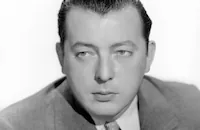
Lewis Milestone
Cast

Barbara Stanwyck

Van Heflin

Lizabeth Scott

Kirk Douglas

Judith Anderson

Roman Bohnen

Darryl Hickman
Janis Wilson

Ann Doran
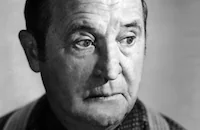
Frank Orth

James Flavin
Mickey Kuhn
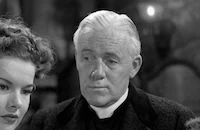
Charles D. Brown
Matt Mchugh
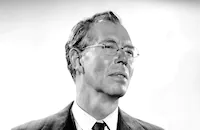
Walter Baldwin
Catherine Craig
Sayre Dearing
Harry Leonard
William Duray
Al Murphy
Payne Johnson
Max Wagner
Tom Fadden
Gladden James
John Kellogg
Tom Dillon
Kay Deslys
Bob Perry
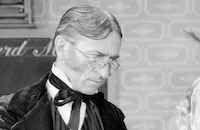
Olin Howlin
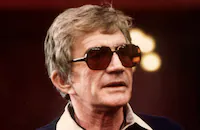
Blake Edwards
Betty Hill
Tom Schamp
Robert Homans Cripps
Thomas Louden
Bert Roach
Ricky Riccardi
Billy Burt
Gene Ashley
Crew
Neal Beckner
Sam Comer
Jan Domela
Hans Dreier
Farciot Edouart
Edith Head
Gordon Jennings
Wallace Kelley
Paul Lerpae
Harold Lewis
Archie Marshek
Richard Mcwhorter
John Meehan
Victor Milner
Walter Oberst
Jack Patrick
Irmin Roberts
Robert Rossen
Miklos Rozsa
Jerry Welch
Wally Westmore
Phil G. Wisdom

Videos
Movie Clip



Hosted Intro
Film Details
Technical Specs

Award Nominations
Best Writing, Screenplay
Articles
The Strange Love of Martha Ivers
Director Lewis Milestone and writer Robert Rossen had previously worked together on Edge of Darkness (1943) and A Walk in the Sun (1945), the latter one of the better combat films of its time (the genre for which Milestone is best known). Though they collaborated on the script of Martha Ivers, Milestone didn't take a screenwriting credit. "I seldom did," he said. Still, the director came up with a creative solution to the duo's biggest script problem: the ending.
Milestone remembered an actual incident that had occurred years earlier in New York's Hell's Kitchen. An infamous local thug named Owney Madden had been confronted in a bar by a young hood with a gun eager to make a name for himself. Thinking quickly, Madden said, "You punk, you haven't got guts enough to pull that trigger. So I'll do it for you." Madden walked closer to the hood, put his own thumb on the trigger, and shot himself - being careful to aim the gun so that he would be wounded, not killed, and thus saving his own life. Milestone adapted this for the film, though he gave it a much darker twist. Stanwyck liked doing the scene because amazingly enough, she had known Owney Madden when she was a young chorus girl!
This was one of Hal Wallis's first movies as an independent producer for Paramount. He had recently left Warner Bros. after a decade as head of production because Jack Warner wouldn't give him the autonomy he desired. On the Super Chief to New York to scout new talent, Wallis ran into Humphrey Bogart and wife Lauren Bacall, who recommended that Wallis check out a play that featured a friend of hers - Kirk Douglas. Wallis saw the play, knew a star when he saw one, and wasted no time in bringing Douglas to Hollywood. Wallis later wrote, "I knew I was taking a risk putting a newcomer against that powerhouse, Stanwyck, but she was extraordinarily considerate and played unselfishly with him in every scene."
Douglas remembered it a bit differently. He wrote of Stanwyck in his memoir: "The crew adored her. They called her 'Missy,' and when she came on the set she went around hugging them, asking about their wives and children by name. But she was indifferent to me. Crew members need attention, but who needs help more than somebody working on his first picture? Several weeks later she noticed me. I could see it happening, like the lens of a camera turning into focus. She looked at me, made eye contact for the first time. She said, 'Hey, you're pretty good.' I said, 'Too late, Miss Stanwyck.' I don't think she knew what I meant. But after that, we became friends."
Milestone adored Stanwyck, calling her "from A-Z, the greatest lady of the silver screen," and he was impressed by her technical savvy. "She would come on a new set," he recalled, "and carefully examine the placement of camera, lights, etc. Then she would call the cameraman over and introduce him to the mysteries of her own favorite key light. She astonished everybody with her knowledge of lighting."
If Stanwyck was cast to type - especially following her conniving femme fatale in Double Indemnity (1944) - both Douglas and Heflin were cast against type, with Heflin playing the stronger, more assertive character and Douglas playing the spineless husband. Douglas's strategy on this was "when you play a weak character, find a moment when he's strong, and if you're playing a strong character, find a moment when he's weak. I had a moment when I was at the desk - I stood up, grabbed Van Heflin by the shirt, and stared him in the eye. He was amazed at this sudden moment of strength, and it confused him. We shot it, and the director said, 'Very good.' Van Heflin said, 'Let's do it again.' The next time I grabbed him, he just looked down contemptuously at my hand. How smart of him - he took away the strength. Nothing wrong with that. As an actor, it was the right thing to do."
One trivia note: Production was complicated by a major strike all over Hollywood. Milestone sympathetically joined the strikers for a short while and the picture was directed in his absence by Byron Haskin.
Producer: Hal B. Wallis
Director: Lewis Milestone
Screenplay: John Patrick (story), Robert Rossen
Cinematography: Victor Milner
Film Editing: Archie Marshek
Art Direction: Hans Dreier, John Meehan
Music: Miklos Rozsa
Cast: Barbara Stanwyck (Martha Ivers), Van Heflin (Sam Masterson), Lizabeth Scott (Antonia Marachek), Kirk Douglas (Walter P. O'Neil), Judith Anderson (Mrs. Ivers), Roman Bohnen (Mr. O'Neil).
BW-116m.
by Jeremy Arnold

The Strange Love of Martha Ivers
Quotes
Go ahead and hit me, Sam. I've got it coming.- Toni Marachek
Trivia
Notes
The film's working titles were Love Lies Bleeding and Strange Love. This film marked the motion picture debut of Broadway actor Kirk Douglas. In her comments on the film, columnist Louella Parsons said that Paramount had "unearthed themselves another wonder boy," and the Los Angeles Daily News review said that Douglas' part "should establish [him] in Hollywood permanently." the Hollywood Reporter reviewer remarked that Douglas' "acting has qualities of more than passing interest, but there is a danger that he May be typed," while the Daily Variety review stated, he "evinces high promise for future as a dramatic actor." Van Heflin was on loan from M-G-M for this film, which marked his return to the screen after serving three years in the U.S. Army Air Corps.
Director Lewis Milestone is quoted in an article in the Los Angeles Sun Mirror on December 8, 1946 as having said that he would never make another picture with producer Hal Wallis because Wallis wanted to reshoot scenes in this film for more close-ups of Lizabeth Scott; Milestone reportedly told Wallis to shoot them himself-which he did. Portions of the film were shot at the Southern Pacific Railroad yard in Los Angeles, CA. Jack Patrick was nominated for an Academy Award for Best Writing (Original Story). According to modern sources, Robert Aldrich replaced assistant director Dick McWhorter when filming was three-fourths completed. Modern sources also list Lorne Netten as electrician and Art Kamp as prop man.

Miscellaneous Notes
Released in United States Fall September 13, 1946
Film debut for actor Kirk Douglas.
Released in United States Fall September 13, 1946














